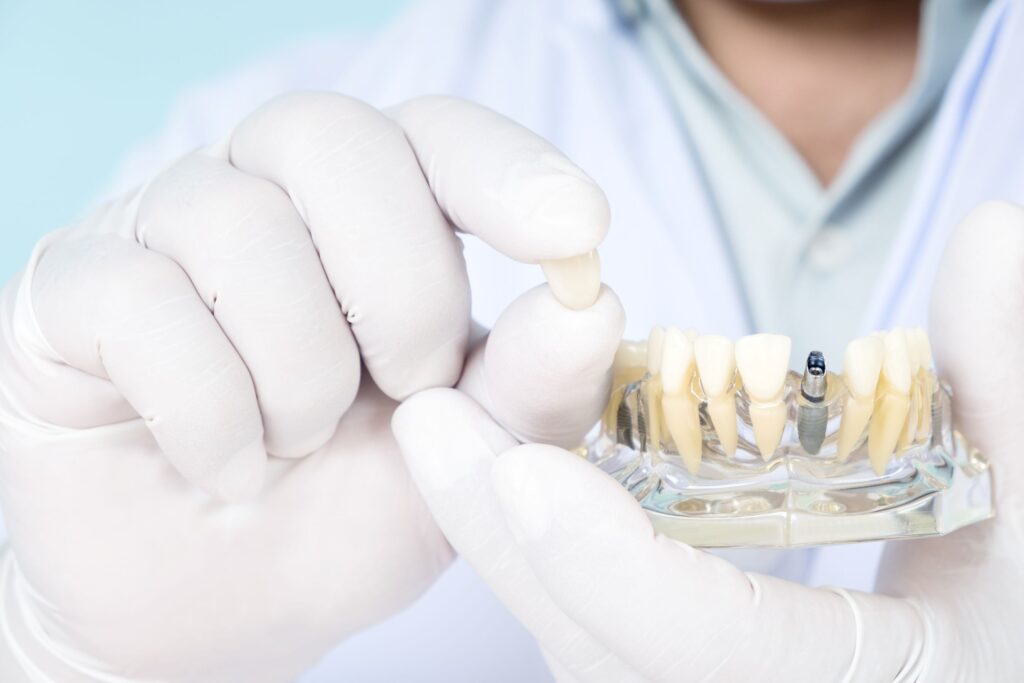
Tooth loss can detract from your daily quality of life because you rely on two complete arches to enunciate words to communicate, thoroughly chew food, and express authentic emotions. Thankfully, your dentist can restore your smile’s appearance and functionality with dental implants.
These prosthetics are the only ones embedded in your jaw for added strength and stability, giving them advantages over alternatives like dentures or dental bridges. However, they’re not invincible and can fail if they’re not cared for correctly. Continue reading to learn 3 ways to keep your new teeth in good shape!
Tip #1: Avoid Alcohol
Dental implants are the only replacement teeth that include a titanium rod that’s placed in your jawbone. It typically takes anywhere from three to six or more months to heal from this procedure because that’s usually how long it takes for your jaw to create enough new bone material to fuse with the metal rod in a process called osseointegration.
Unfortunately, if you drink alcohol during this stage of recovery, it could cause your implant to fail. It is a diuretic that can leave you dehydrated, compromising your immune system. This decreases your body’s ability to fight off potential infections, like peri-implantitis, the number one leading cause of failure. Instead, try drinking more water to clean your mouth and support your general health.
Tip #2: Quit Smoking
Smoking cigarettes, vaping, or chewing tobacco are also harmful habits that should be avoided if you want to preserve your dental implants. These products contain nicotine, which restricts your blood flow and oxygen levels. Your system can’t deliver essential nutrients or disease-fighting cells to your mouth as a result, leaving you at an increased risk of developing periodontal infections or other issues that can negatively affect your implant.
You might think it’s safe to quit long enough to recover and then resume your habit, but smoking can cause failure even 10 or more years after its initial placement.
Tip #3: Start with Soft Foods
People missing teeth sometimes develop malnutrition because many foods containing essential vitamins and minerals, like raw fruits and veggies, are difficult to bite into and chew without a full row of chompers. You’ll be able to eat a wide variety of wholesome ingredients once you’ve healed from your implant surgery, but you might want to start slowly to avoid potential discomfort.
For instance, biting into anything overly hard, crunchy, hot, or spicy could trigger a painful reaction in your teeth or gums after your surgery, and should be avoided. You can avoid potential aches and inflammation by sticking with softer choices that are easier to eat, like applesauce, mashed potatoes, yogurt, pudding, or soft pasta.
Your dentist will provide a list of post-op care instructions; following them closely is the best way to keep your dental implant looking and feeling great!
Meet the Author
Dr. Karen Littlefield Neil has 30+ years of experience helping families in Fort Worth achieve and maintain beautiful, healthy teeth and gums. She earned her dental doctorate from the University of Texas Health Science Center at San Antonio and is a Fellow of the International Academy of Implant Dentistry, meaning she has the unique training to rebuild both your smile’s appearance and functionality skillfully. She partners with the best local surgeons to ensure accurate implant placement and provides lifelike restorations to upgrade your grin. You can request an appointment on the website or by calling (817) 738-3368.
